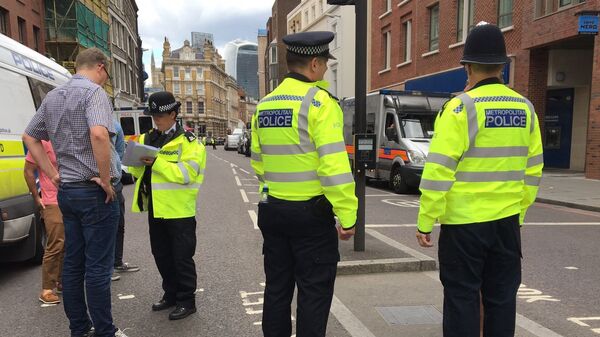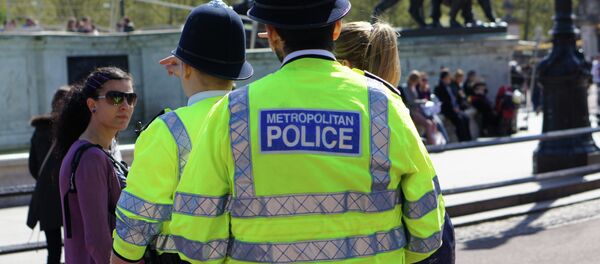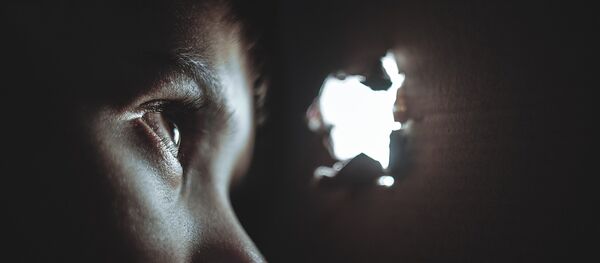In May 2013, Dr. Koshka Duff was walking through Hackney, east London when she saw police stopping and searching black youths on a housing estate — concerned the actions were racially-motivated, she decided to observe the search of a 15-year-old.
While officers went through the young man's personal effects, she attempted to give him a legal advice card, setting out his rights — and police responsibilities — during a stop and search procedure, but the police physically prevented her from doing so, grabbing her arm before arresting her on suspicion of obstruction and assaulting a police officer. While under arrest, Duff says she endured a "very violating and humiliating experience", in which she incurred "significant injury" and was "subjected to degrading treatment".
‘Passive Resistance'
Speaking to the BBC, Duff said when she acted in the spirit of "passive resistance" once arrested, going limp rather than walking to the police van willingly. While being transported to the police station, she claims to have heard one of the officers describe her as a "bleeding heart lefty" and "some sort of socialist".
At Stoke Newington police station, Sergeant Kurtis Howard approved a strip search of Duff — in the detention log, he stated he was authorizing it as Duff "assaulted officers in the execution of their duties", "refuses to tell police her identity", "may have weapons or other items concealed", and was "being obstructive for reasons unknown".
While the officers who conducted the strip search women, in accordance with guidelines, Duff heard male officers talking through the open door while the examination was going, and feared they might be watching.
"The purpose of the strip search I think was to punish me because they didn't like what I had done in getting in their way. I think they thought it would soften me up and make me give them my details by essentially subjecting me to very painful and degrading treatment in order to make me comply," Duff suggests.
Legal Battles
Duff was later charged with two counts of assaulting a police officer and one of obstructing a police officer, but was acquitted of all charges following a trial — although her experience left her with multiple injuries and post-traumatic stress disorder.
At the time, Duff was a final-year masters student in piano performance at the Royal College of Music, but her injuries meant she had to postpone the completion of her masters until the following year. She also suffered intrusive thoughts about the strip search, which have triggered panic attacks — to this day, she has flashbacks coupled with involuntary facial spasms.
Panel chair Maurice Cohen said there were "reasonable grounds justifying" the strip search, as Duff was "non-compliant", meaning Howard was "unable to conduct a risk assessment, obtain Dr. Duff's identity — an essential part of that risk assessment — or ascertain if she suffered from any mental health illness, other vulnerability or if she was on drugs".
Duff disagrees, and is challenging the hearing's ruling via judicial review — speaking to the BBC, lawyer Iain Gould, a specialist in police misconduct cases, said the strip search "certainly [seemed] excessive and unlawful", and "there appear to have been no reasonable grounds to assume Duff was carrying a weapon on her person".
Widespread Use?
Guidance governing the use of strip searches by UK police is outlined in Code C of the Police and Criminal Evidence Act 1984, which states strip searches can only be executed "if it is considered necessary to remove an article a detainee would not be allowed to keep and the officer reasonably considers the detainee might have concealed such an article". Moreover, strip searches "shall not be routinely carried out" if there's no reason to suspect an individual has concealed such articles.
Statistics on the volume of strip searches by UK police aren't published, but figures obtained by The Guardian indicate the Metropolitan Police alone strip-searched around 134,000 people 2009 —2014. Of this total, 10.5 percent were women, and 3.5 percent were children, meaning 4,638 individuals aged 10 — 16 were strip-searched in that period.
Sputnik has contacted the Metropolitan Police for comment but is yet to receive a response as of October 24.



